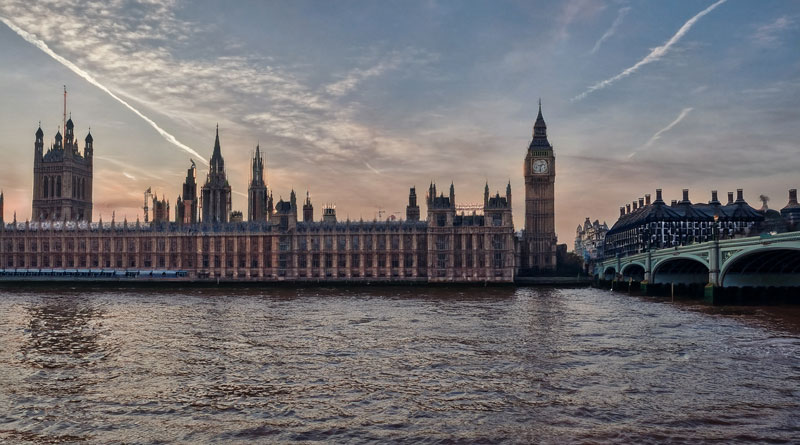Government Backs Licensing Reforms to Drive Hospitality Growth

The government has announced its commitment to implementing a comprehensive package of licensing reforms following recommendations from a joint industry-government taskforce, in moves that could save the hospitality sector millions of pounds annually while streamlining operations across pubs, clubs and restaurants.
The reforms, developed through a six-week policy sprint involving representatives from across the hospitality industry, government departments, police and local authorities, target what industry leaders describe as decades of accumulated bureaucratic burden that has stifled growth and investment.
Central to the package is the proposed creation of a National Licensing Policy Framework – a new structure designed to sit between the Licensing Act 2003 and existing statutory guidance. This framework aims to deliver greater consistency across local authorities while maintaining local decision-making powers.
The government has also committed to introducing a one-time licensing condition ‘amnesty’ to coincide with the twentieth anniversary of the Licensing Act.
This measure will allow businesses to work with licensing authorities and police to remove outdated or disproportionate conditions that may have accumulated over two decades of operation.
Other significant changes include:
- Removing mandatory local newspaper advertising requirements for new licences and variations, potentially saving the industry £1-2 million annually
- Increasing Temporary Event Notice (TEN) allocations from 15 to 25 per year for licensed premises, covering up to 30 days
- Enhanced outdoor trading provisions to help venues maximise use of external spaces
- Strengthened evidence requirements for objections and licensing conditions
Nick Mackenzie, co-chair of the Licensing Taskforce and CEO at Greene King, said: “As an industry we welcome the proposals and see this as a positive and necessary step towards updating a planning and licensing system that, for too long, has limited hospitality’s ability to drive economic growth across the UK. I thank the industry and the Taskforce for the serious and meaningful recommendations that we have put forward to bring these proposals to fruition.
“It’s encouraging to see how the Government has worked at pace to take forward the proposals, particularly in areas that matter the most, including the introduction of a new National Licensing Policy Framework.
“Whilst licencing reform won’t offset the significant layered cost of doing business that the industry bears, they form part of wider changes to back the sector, which will support in unlocking opportunities for pubs to further invest in growth across the country.”
Kate Nicholls OBE, Chief Executive of UKHospitality, who chaired various working groups within the taskforce, said the reforms represented “a welcome launchpad, backing the recovery of the hospitality sector.”
Reflecting on her involvement in the original Licensing Act implementation 20 years ago, Ms Nicholls added: “The introduction of the National Licensing Policy Framework alone is a vital gateway as part of the reform. This will rebalance and modernise existing licensing rules, whilst giving clear direction to local authorities.”
Emma McClarkin, CEO of the British Beer and Pub Association, welcomed the government’s response to sector recommendations, describing them as “good first steps” while calling for further measures including business rates reform and employment cost mitigation.
Michael Kill, CEO of the Night Time Industries Association says:
“We welcome the government’s publication of the Licensing Policy Sprint report and its commitment to working with industry to reform the licensing framework that underpins the UK’s night time economy.”
“It’s clear that there is both the intent and the political will to bring about positive change. While we acknowledge that there’s still a considerable journey ahead, it’s encouraging to see the government recognising the need for a modern, responsive licensing system—one that better reflects the evolving social and economic role of nightlife and hospitality in our towns and cities.”
“These reforms will require thoughtful, layered consultation and genuine collaboration with stakeholders at all levels—from local authorities to operators, cultural leaders and communities. We are pleased to be part of that process and stand ready to support efforts that will deliver a licensing regime fit for the 21st century.”
“This is a vital opportunity to reduce unnecessary burdens, improve transparency, and help unleash the full potential of the night time economy as a driver of economic recovery, social cohesion and cultural vibrancy across the UK.”
The removal of newspaper advertising requirements represents a direct cost saving, with research showing average advertising costs of £332 per application across 250 surveyed invoices, with some newspapers charging significantly above this average.
The reforms require varying degrees of consultation and regulatory change. Some measures, such as the newspaper advertising removal and TEN increases, could be implemented relatively quickly through secondary legislation amendments.
The government is expected to begin formal consultation processes on the various recommendations in the coming months, with implementation timelines varying according to the complexity of each measure.
